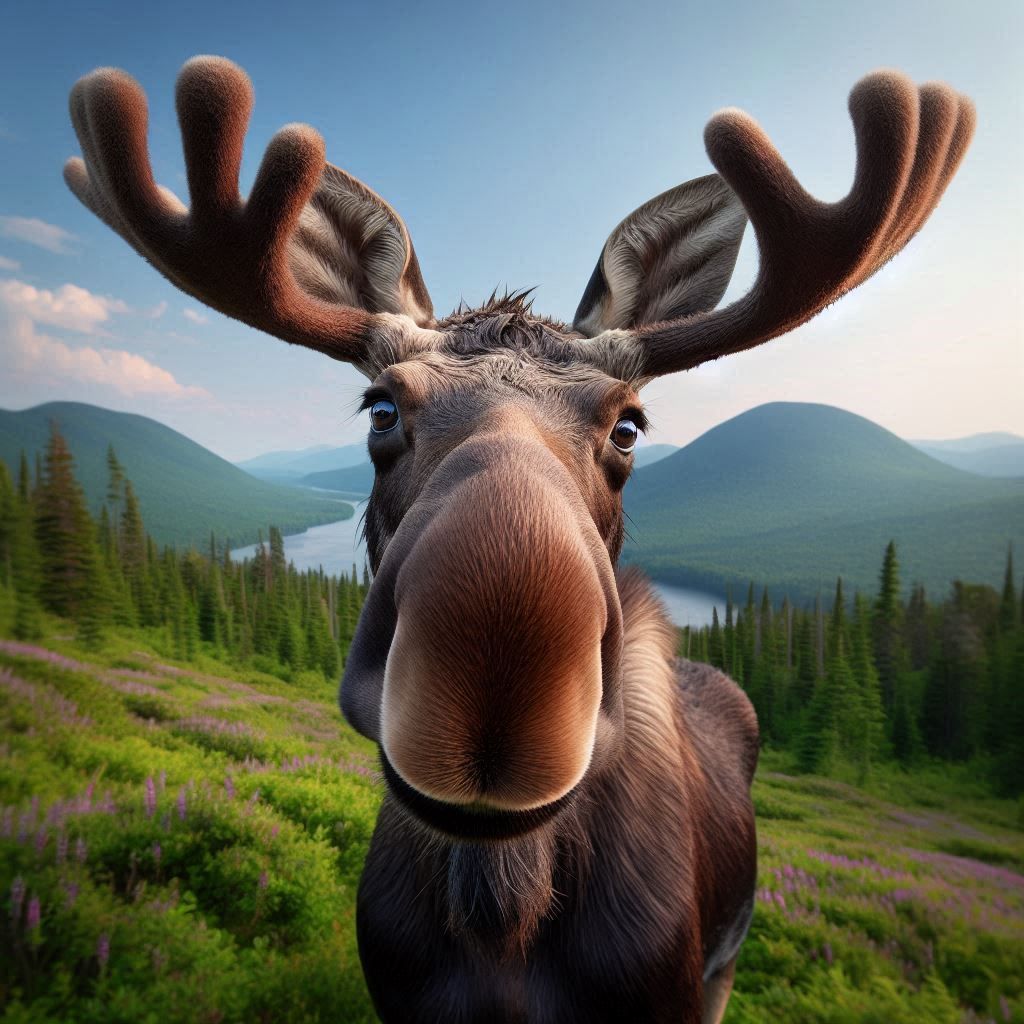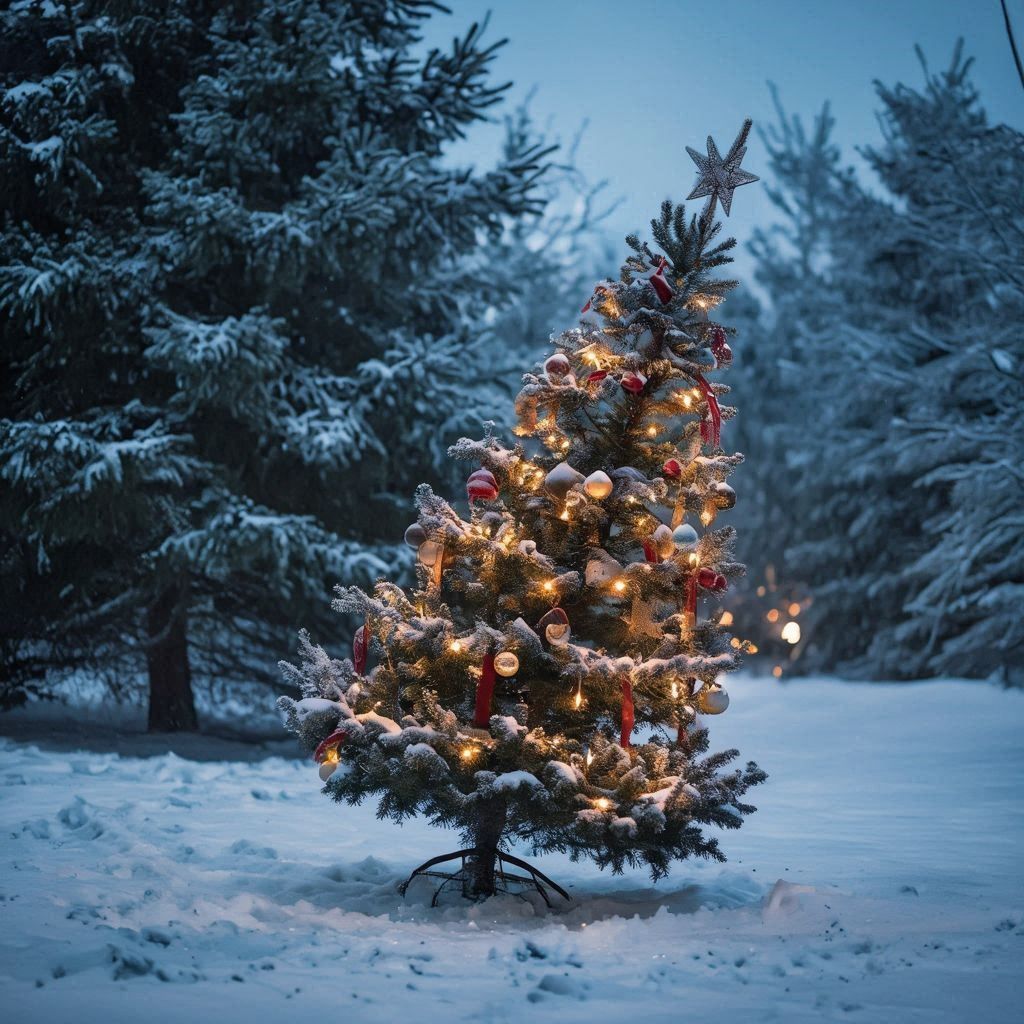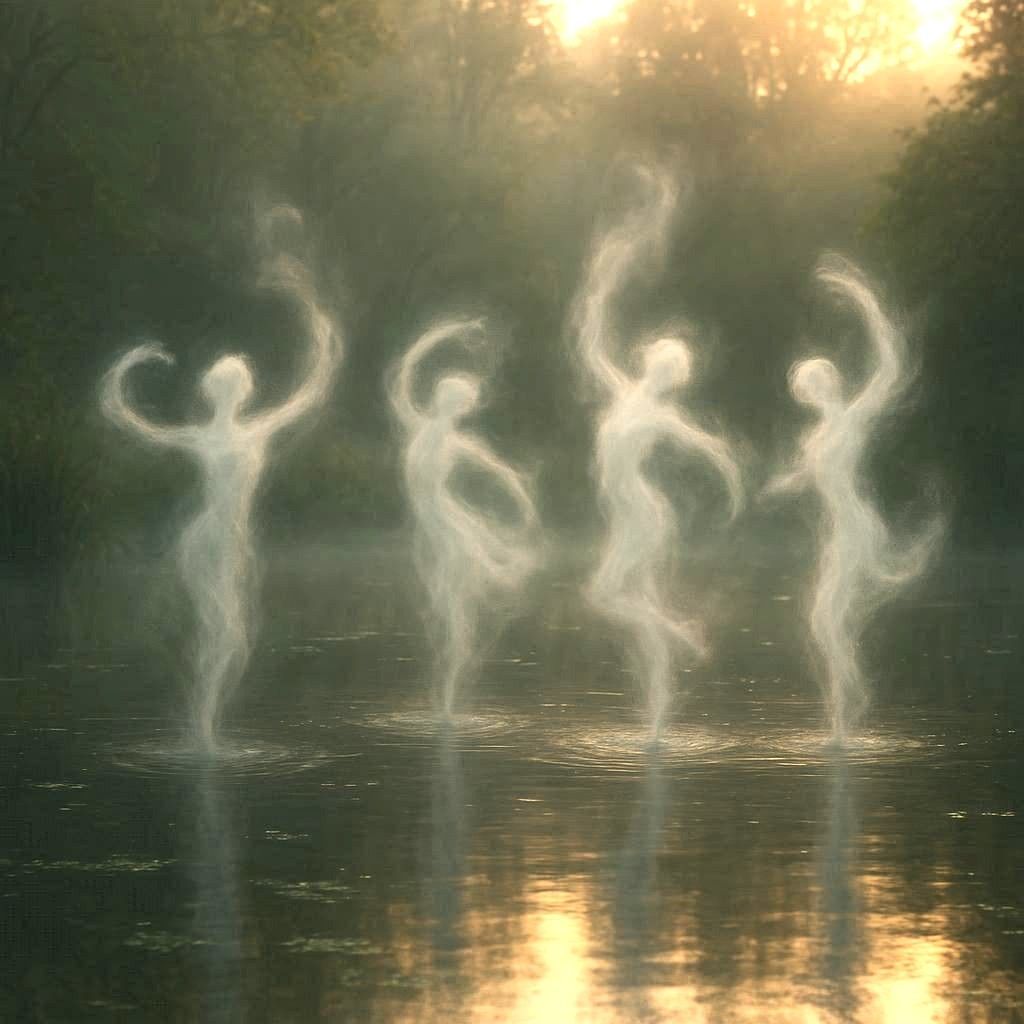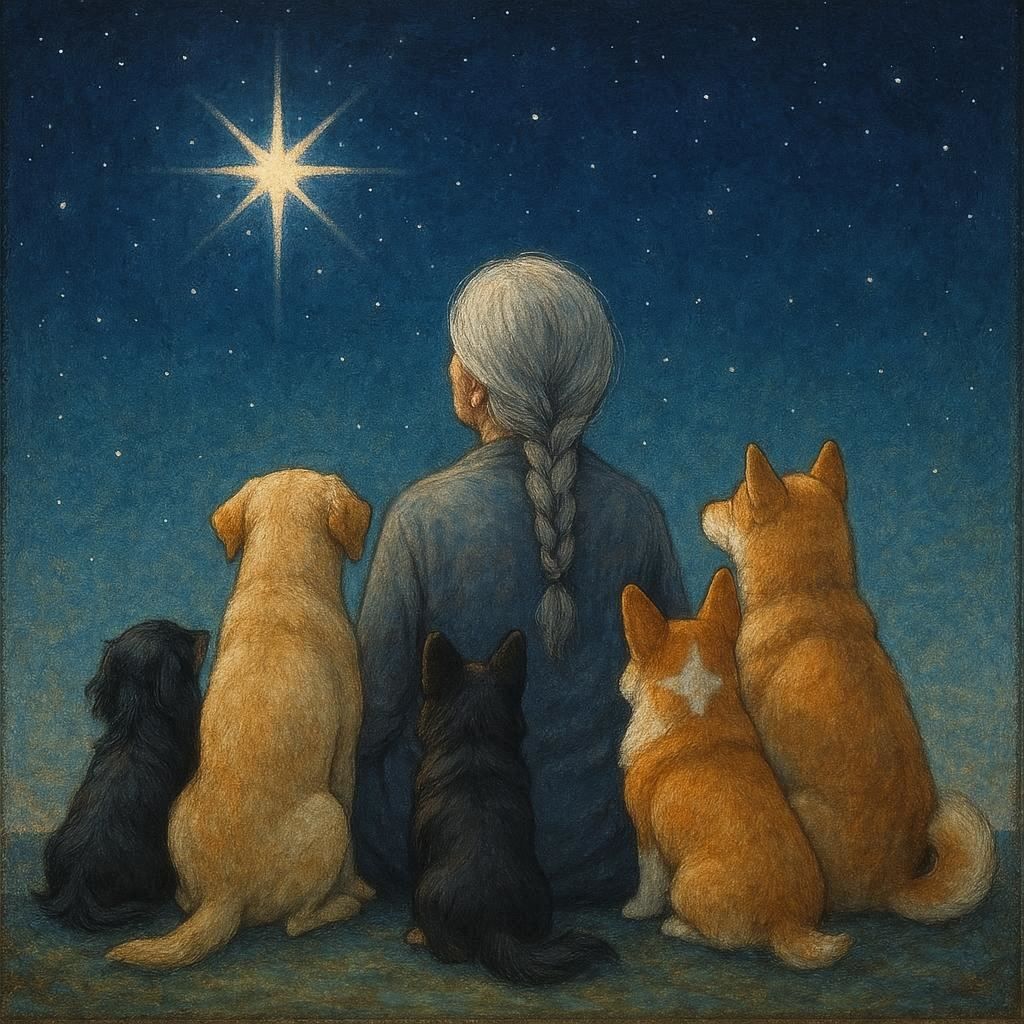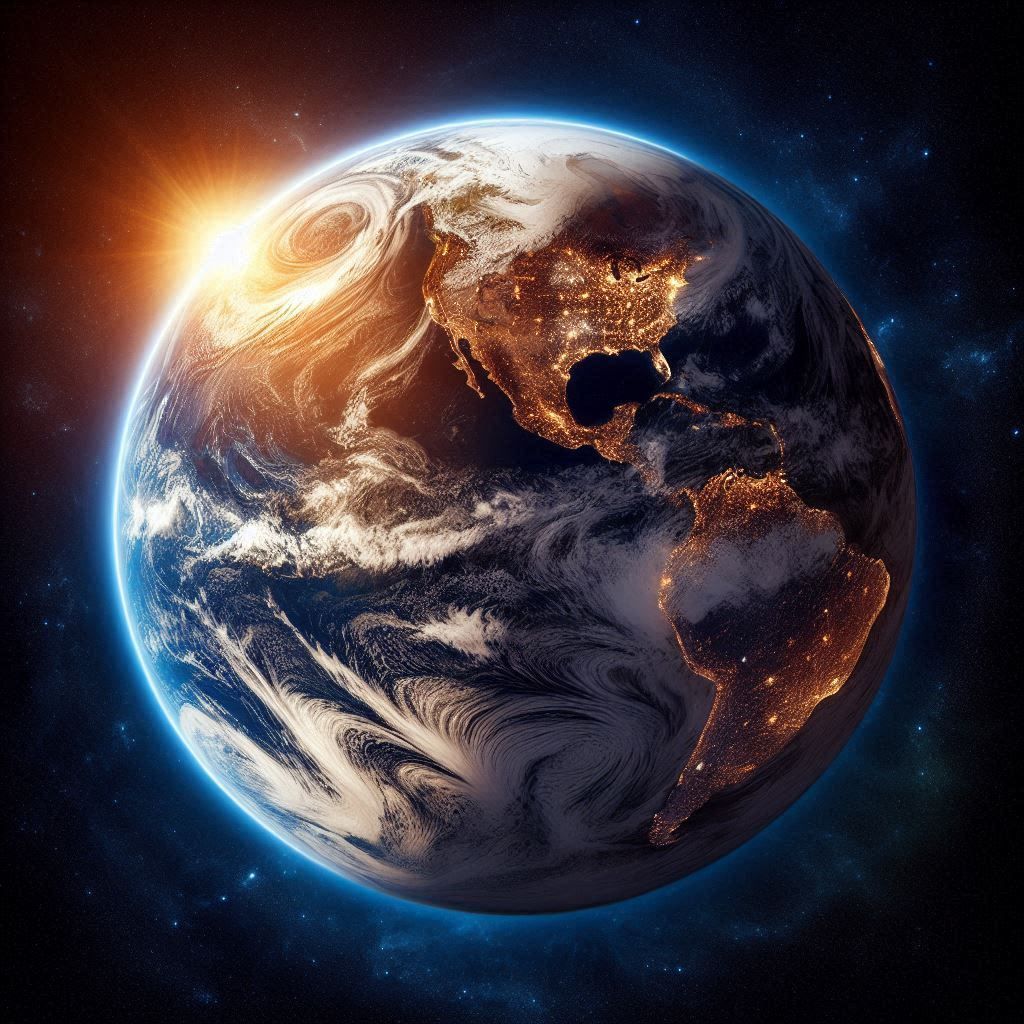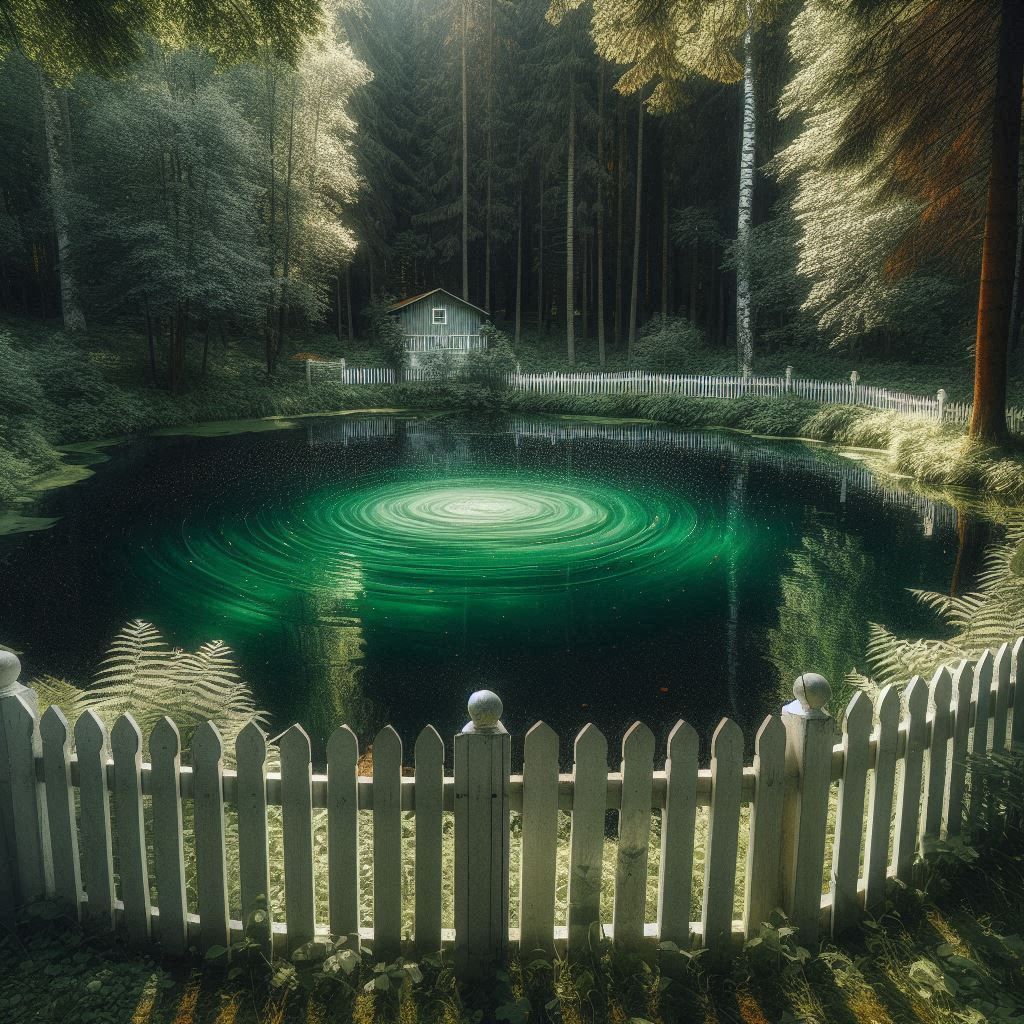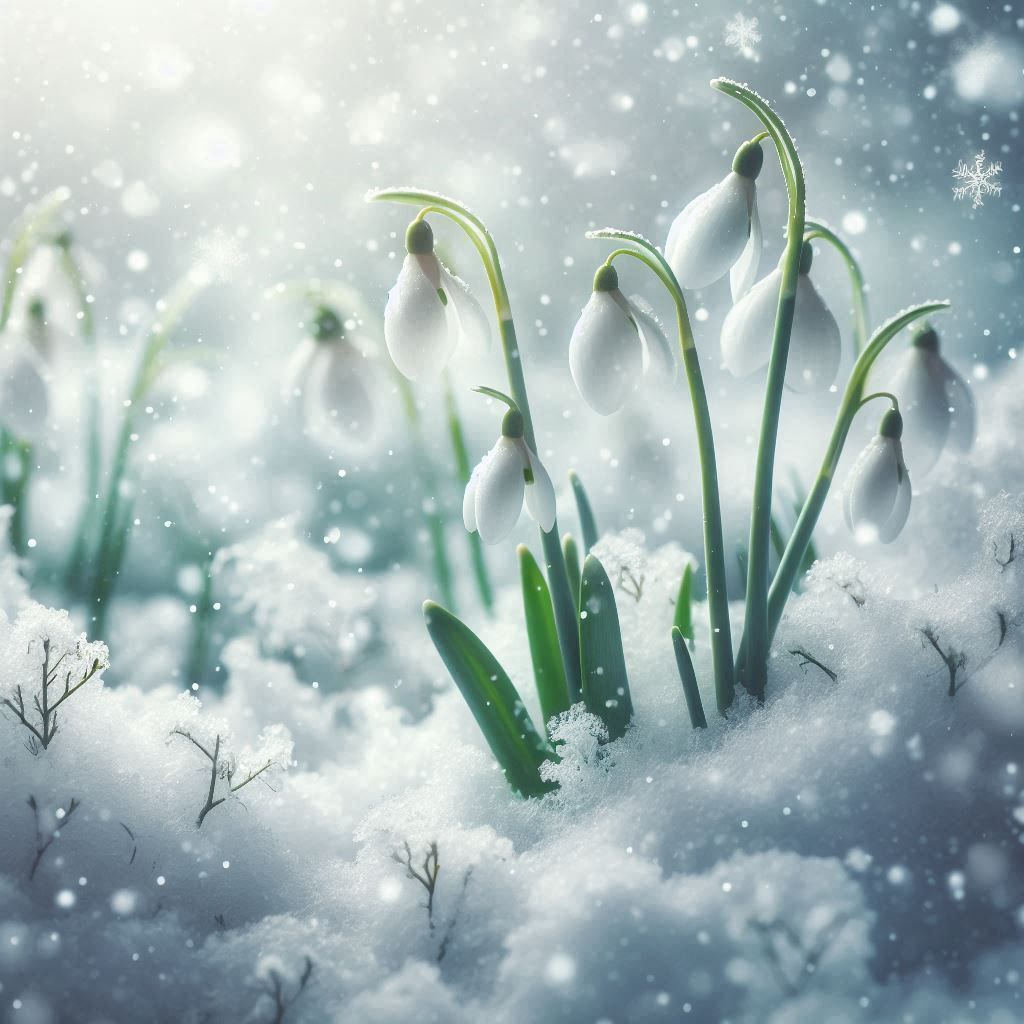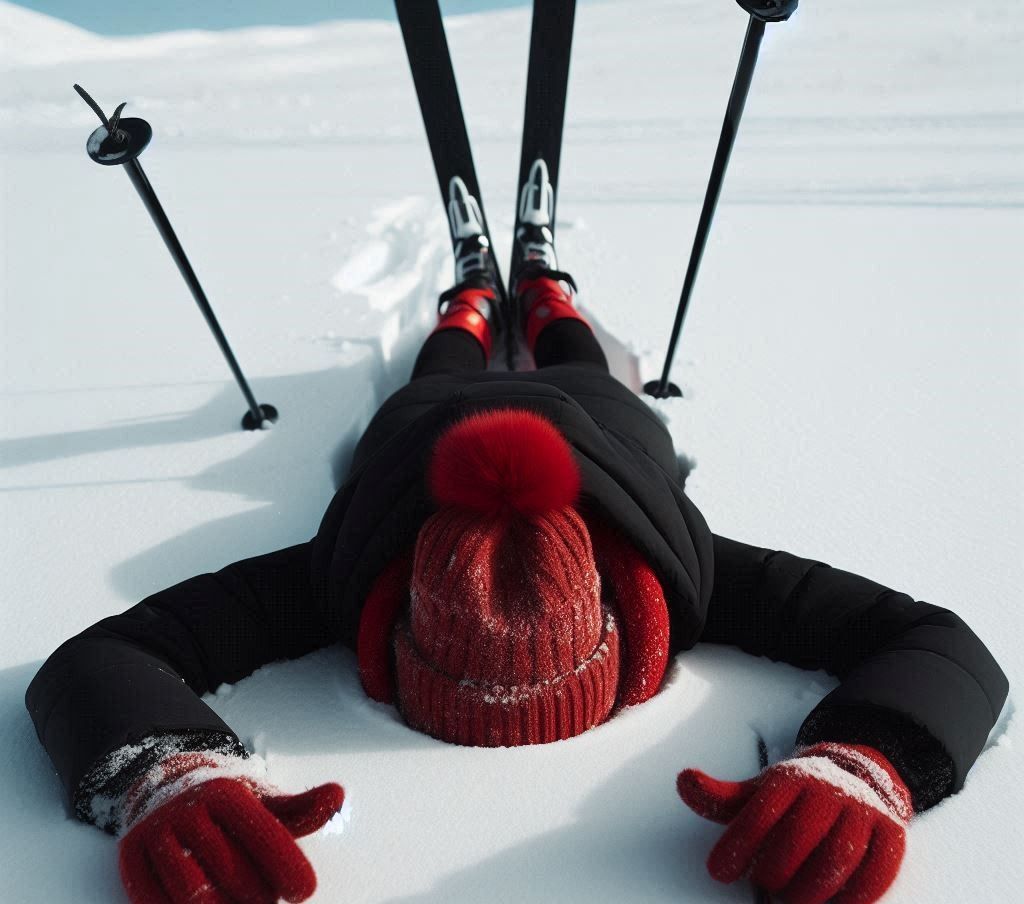In the Wilds with the Supernatural
When I ask someone to describe the woods in one word, often that one word is “spooky.” Which astonishes me. Because my one word is “enchanting.”
Granted, “spooky” and “enchanting” can have overlap. Both can describe something that is magical and/or mysterious. Both can also refer to something that is captivatingly beautiful. But whereas “spooky” generates fear, “enchanting” generates wonder.
This is not to say, however, that I have never found the woods spooky. I have had numerous spooky experiences in the woods. Including here in the Alleghenian mountain hollow that is my home. Woods I have walked since I learned to walk and loved heart and soul ever since I can remember. Woods that during our time together have become my very essence. Now, as they are deep inside me, I am deep inside them. As long as I live, these woods will be with me, and as long as these woods are here, I will be here too.
After that, I do not know. But I would hazard to guess we will still be together.
Yet, for all that friendly familiarity and feelings of unbreakable attachment, there are moments when, with no warning whatsoever, these woods take on an eerie, surreal quality, like the bewitched forest in a dark fairytale, and I am afraid. To say the least, the paradox is baffling. Yet, these uncanny mutations also make some sense. After all, these woods are part of the Allegheny Mountains, a sub-range of the Appalachians, and there are no mountains on Earth more famous for being spooky than the Appalachians. Superstitious beliefs, supernatural sightings, unexplained phenomena, magic, and mysteries of all kinds abound here, and there are large volumes of accompanying folktales and legends to keep the otherworldliness of Appalachia ever alive and present, if only in the human mind.
Most Appalachia aficionados attribute the spookiness of its mountains to things like their extreme old age, violent birth that killed their mother, and lifetime of being constantly chipped away at. Also often given credit for Appalachian spookiness are the mountains’ frequent spells of fog-induced concealment, countless shifting shadows, slopes of twisted, tortured rock, and deeply hidden vales. Regularly mentioned too are the human tragedies that have taken place in the Appalachians, as well as the unsavory, even wicked characters who have secreted themselves away in the region’s isolated hills and hollows. All of which make the Appalachians a believable home for creepy beings, enigmas, sorcery, negative energy, curses, freakish curiosities, etc., etc. No wonder these woods can seem haunted.
Or maybe they really are. Who am I to say?
But if the Appalachians, including the Alleghenies, are indeed haunted, I don’t buy the reasons given as telling the whole story. These woods have mystical secrets yet to be shared. I am certain of it.
Because, yes, the Appalachians are ancient, but there are mountains all over the world that are older. And, yes, the Appalachians had an intense geological beginning, the result of a series of continental collisions, but other mountains, for example, volcanic mountains, have had rougher and certainly more explosive starts.
It is true as well that the procreator of the Appalachians, the Iapetus Ocean, ceased to exist in the world as the mountains emerged and were delivered. However, each thing that is of this planet ultimately gives up the ghost to clear the way for what comes next. Here on Earth, death births life.
Factual too is that, for the hundreds of millions of years since their creation, the Appalachians have been unceasingly subjected to the workings of wind, water, and ice. But these natural elements need not be considered ruinous batterers. Instead, I deem them devoted sculptors, the painstaking art of which has revealed the gentle, serene, and feminine nature of the Appalachians. Like so many women whom I admire, the Appalachians exude a quiet, but boundless strength.
As for being periodically shrouded in fog and buried in shadows, along with having contorted landforms and abysmal hollows so secluded they create the impression of being cut off from the modern world and in primordial time, I cannot think of any mountains with less intimidating looks than the Appalachians. Short, hunched, roly-poly, wrinkled, and rumpled, they remind me of little old soft-hearted, strong-minded grandmas, their forests bundled about them like thick, beautiful shawls of ever-changing colors, textures, weaves, and patterns.
Regarding the human part of the equation, tragedy has always been with us in all times and places. As have depraved reprobates and vicious thugs.
Then why do so many call the woods, and the woods of the Appalachian Mountains in particular, spooky? Moreover, why, in these Alleghenian woods I love and have known as my one true home since childhood, why am I sometimes spooked when there is no perceivable reason for being spooked? How strange that is.
Strange, yes, but hardly unique. Quite a few of the most seasoned outdoorspeople have reported incidences of groundless anxiety when in untamed nature. While there are modern psychological theories to explain such sudden, out of the blue, creepy, and bizarre states of mind, I don’t believe they tell the whole story either. I guess that is why I try to fill in the dissatisfying lack with Pan, the classical mythological god of nature’s wilds.
It is not an original thought on my part. The notion of an encounter with Pan in the wild being the cause of irrational fear was common among ancient Greeks. In fact, the word “panic” comes from the Greek panikos, meaning “of or relating to Pan.”
To the ancient Greeks, Pan was nature at its wildest, and so it is no wonder he did not fit the mold of the stunning deities who resided in golden splendor on Mount Olympus. Pan’s looks were so grotesque that at birth, his mother rejected him. Shame on her. Although I will concede the depictions I have seen of Pan, including the treasured statue that sits outside my front porch, are a bit unsettling. Whereas his upper body is that of a man, he has the shaggy bottom, cloven hooves, and tail of a goat, and on his head, he wears horns. Characteristics that when Christianity came along became associated with the religion’s devil. Which understandably caused a huge dip in Pan’s popularity. With some so eager to distance themselves from the disgraced champion of the wilds, they declared him dead. However, I have a sneaking suspicion he only went underground.
In addition to his outlandish appearance, Pan also differed from the Olympians because of where he made his home. For him, the gilded halls of a palace held no appeal. He chose instead to live in the remote mountains and forests of Arcadia. Yet, he was by no means a loner. Pan was intimately connected to the natural world and its inhabitants. He had many close relationships with shepherds and hunters, other rustic spirits, and all wild animals.
Nor was he a miserable grouch like several of his immortal colleagues. Pan was revered for leading a carefree life, made rich with music and merriment. He was as free a spirit as the wilds of his domain. And while Pan certainly had some huge, terrible faults, which I won’t get into here, I suppose that is why I like him so much. I can relate to choosing unsophisticated, but wonderful nature over the artificiality of gaudy grandeur and the freedom that choice bestows.
As to why Pan inflicted antiquity’s wilderness wanderers with unfounded jitters, as well as why I imagine him doing the same today to the likes of me, I can’t help but fancy him as the enduring guardian of lands yet unbroken. In my mind’s eye, Pan protects what is left of nature’s sacred grounds from further encroachment by careless, unappreciative people. And, for that, I have tremendous sympathy.
Because, let’s face it, we humans have a rotten history when it comes to taking care of the natural world. Just look at what some of us have done to vast swaths of the Appalachians, and merely for the sake of a gross amount of money. For centuries, grasping, ignorant, uncaring fat cats have relentlessly and ruthlessly savaged the Appalachians, overly logging these mountains for timber, inordinately mining them for coal, and unduly drilling them for oil and natural gas. It is like they have beaten the Appalachians broken, torn, and bloody over and over again. What’s more, I fear that if some of America’s current oligarchs get their way, the vile assault on these lovely gentleladies will soon increase and never stop until their every bone is fractured, their insides are irremediably ruptured, their lifeblood is completely drained, and they are dead.
Needless to say, but I will, it is not just the Appalachian Mountains that suffer the consequences of limitless greed. So do their inhabitants. Including humans. Specifically, those who are working stiffs and must labor to survive in the arduous, dangerous jobs of industries that most financially benefit the ultra-rich and in obscene amounts. While those of us who are not loggers or coal miners or steelworkers or drillers pay a high price to the moneybags too. Our air is polluted. Our waters are contaminated. Our soils are poisoned. Our wildlife is disregarded. Our landscape is desecrated. The end results are disease, despair, and untimely death.
Heaven save me from those who confusingly worship the dollar instead of what is truly almighty. And heaven save me too from those who are among the Appalachians’ unmoneyed masses but still want industries that have literally been killing their families for generations to remain and even return to kingship in their ancestral home. What are they thinking?
And since I am talking to heaven here, thank heaven for Pan who, by way of imagination, tries to help us humans to be humble, aware, and respectful of nature’s hallowed wilds. Even if it is by scaring the bejesus out of us every now and again. Because heaven knows, as we have made and continue to make a mess of our most precious resource, upon which our very lives depend, we need the fear of a potent, supernatural presence put in us.
I would love to meet Pan in person someday. But, of course, that is not going to happen. He’s a myth.
As if that were not enough to discourage me from tracking him down, for all my decades of wandering the Allegheny Mountains, other Appalachians, and different mountains around the globe, never once have I come face to face with what most would define as a supernatural being. Even Pennsylvania’s iconic cryptid, the squonk, has alluded me, and he is another favorite spooky entity I would love to meet. No matter he is apparently uglier than Pan.
According to folklore, the squonk is the world’s ugliest creature who currently lives solely in what little is left of Pennsylvania’s hemlock forests. He is described as about the size and shape of a pig, and his face, legs, and tail resemble a pig’s, but his skin is bulky and loose and lies on his body in unsightly, saggy folds. Worse, his skin is totally covered in crusty warts, moles, and other lumpy growths.
The squonk is well aware of his hideous appearance and weeps constantly in shame and humiliation because of it. He cries so much and with such vigor, evolution eventually provided him with webbed feet to keep him from drowning in his own tears. Before then, countless squonks died, their fossils discovered centuries later in the bottoms of lakes they themselves had made.
Also because of his revolting looks, the squonk spends the daylight hours, as well as all moonlit nights in hiding beneath the low-hanging boughs of hemlock trees, not wanting to risk accidentally seeing a reflection of himself in a pond or other waterbody. He only moves about in the twilights of dawn and dusk and the unlit black of clouded nights, leaving behind him a tear-stained trail that is sometimes followed by hunters. But the squonk is an exceptionally challenging trophy to win. If captured, he will dissolve himself in his tears until all that is left are bubbles. Which I would wager are real bears to taxidermy.
Now we come to the best part of the squonk’s story. Unsurprisingly, he is a made-up beast, straight from the human imagination. But what is astonishing is he was created to have the same effect on people as Pan. Consequently, he wields the same power for keeping the careless and unappreciative among us out of nature’s precious wilds.
Two foresters, William Thomas Cox, author of the 1910 book, Fearsome Creatures of the Lumberwood, and Henry H. Tryon, author of the 1939 book, Fearsome Critters, were the squonk’s principal inventors. Although the squonk may actually have gotten his start a few years earlier with a group of lumberjacks.
In any case, while neither Cox nor Tryon were from Pennsylvania or worked in its woods, both witnessed and were disturbed by the mindless, avarice-driven timbering that destroyed an unfathomable number of America’s forests by the early twentieth century. Thus came their squonk to the rescue of the hemlocks, white pines, and various hardwoods that remained.
I sometimes wonder if Cox and Tryon used the myth of Pan as their archetype, altered to what they thought would save the virgin and old-growth forests they held dear. For this sort of purpose is what I relish about myths and folktales. Close relatives, both are like kaleidoscopes. You pick one up, hold it to the light, give it a little twist, and new patterns are created right before your very eyes. Essentially, myths and folktales are diverse designs of the same eternal, universal, and metaphorically truthful stories. Makes me think someone is trying very hard to tell us some pretty important stuff.
Anyhow, what William Thomas Cox and Henry H. Tryon did with their squonk worked, at lease in some measure. It promoted and achieved a certain amount of preservation of nature’s wild treasures So, bravo, you two. You are my heroes.
However, I wonder. I wonder if Mother Nature and we might be better off if now people were encouraged more and given greater opportunities to visit the wilds. It’s risky, I know, but it seems to me too many of us have grown apart from the woods and other wilds. You cannot care about and appreciate what you do not know. And being afraid of what you do not know can make for approval of and even participation in destruction.
Bless you, Cox and Tryon, but I think maybe it is time to boldly promote the woods as the wonderlands they are and thus have a shot of getting beyond as identifier in first place, “spooky.” And while “enchanting” may not work for everyone as it does for me, surely each person can discover an adjective of their very own that implies appreciation and caring. That is my desire and hope.
Although, granted, the woods’ off and on spookiness is natural and therefore will never be eliminated. This is a condition that must be accepted, braved, and respected. In addition, it is not entirely impossible that Pan and his panic will sooner or later contribute their two cents to anyone’s spooky emotions and experiences in one or another wilds. Though extremely rare, I have had brushes with Pan.
The closest encounter was decades ago in Idaho. I was hiking with someone who was, to put it mildly, an inexperienced hiker. As I have found to be occasionally true of inexperienced hikers, he was overconfident and seemed wanting to prove dominion over Mother Nature. Which I consider as foolish as it gets. Mother Nature has been around since the universe began. She has seen it all and knows it all. I don’t dare to ever invite competition with that most formidable of grande dames.
So, after some time spent walking mostly uphill, when I realized our trail map was wrong, that what it claimed to be a loop was not a loop at all, and it was further clear to me we were at risk of running out of daylight if we continued, I strongly suggested we turn around and head back. He refused. Which led me, after polite pauses of fifteen minutes or so, to keep repeating my suggestion, each time more fervidly than before. Still, he refused. And he continued to refuse until I knew it had become inevitable we were going to run out of daylight and be forced to spend the night in Idaho’s Pioneer Mountains. Without adequate provisions though we be.
Finally, at sunset, the trail dead ended on what I later learned was an old logging road. It was there my companion in outdoor blundering agreed to call a halt to our hike.
By this point, he was feeling unwell with leg cramps and nausea. This went on until it was pitch-dark, and I thought perhaps it would be beneficial for me to do a little exploring and see if I could find us some help. So, after tossing my backpack to my trail buddy – a backpack that contained our only flashlight, a few other emergency items I always carry with me when I hike, and some now empty water bottles – I got on the logging road and started walking, hoping that the road and I were bound for civilization.
As it turned out, my hope was in vain.
I don’t recall how long I walked that road. But my guess is probably no more than an hour. Bone-weary, I was in a bit of a daze, as well as distress. It was so dark I literally could not see my hand in front my face, and all sense of time was gone.
So I suppose it is no wonder I unintentionally wandered off the road and into the woods. To this day, I cannot begin to fathom how it happened. It was like I lost consciousness, and then all of a sudden, I woke up, and I was in the woods.
As I stood there trying to get my bearings, I heard hoof beats. They thundered right past me. Whatever animal it was, it came close enough that I felt a rush of air. Still, I couldn’t see what it was. It could have been an elk or maybe just a mule deer or a white-tailed deer.
The hoofbeats were so loud. They sounded like they belonged to something huge, and though extremely rare, moose have been known to travel through the Pioneer Mountains. However, my sensory perception was probably way off. It is just as likely those hoofbeats belonged to a baby fawn. Or, who knows? Maybe it was Pan, and they were the hoofbeats of a miffed goat.
I can almost believe they were. Because at that moment in total darkness, lost in a strange wood, I felt panic, and I nearly succumbed to it. I had the most overwhelming, irresistible urge to run. And I would have. But someone stopped me.
It was my uncle. The greatest woodsperson I have ever known. Who passed on to me his love of the woods, along with presumably some woods smarts. He stopped me right where I stood with these five little words: “Don’t be a damn fool.”
Obviously, my uncle was not there. Yet, he definitely was there, and he was as real as real gets. Although I could not see him any more than I could see the hoofed creature that had just galloped past me. But without a doubt, it was my uncle’s voice I heard. A voice I knew quite well, and the words and tone of that voice were characteristic of the man to a T. If that were not enough to convince me of his presence, I could feel the warmth radiating off his body. I could also smell his familiar scent, a sylvan mix of earth, roots, and tree bark with a whiff of woodsmoke thrown in. He was there, and he prevailed. He fought off Pan for me.
Afterwards, I somehow found my way back to the logging road. I don’t know how I managed that either. But I did, and I followed it to where I had left my partner in idiocy. There, we spent a very long, cold, and worrisome night. Nonetheless, what I will always remember more than anything is that, however belatedly, the stars came out and put on a show so amazing, my wretchedness was replaced with a confident peace.
The next morning, I took the trail in reverse to where we had begun our hike the day before. From there, I drove to a general store where they let me use their phone to call the local fire and rescue. Who promptly showed up, and together we made it to where my associate in misadventure still sat right where I had left him. Thankfully, he had kept his promise not to wander off in search of water as he had wanted to do. Thankfully too, he was in relatively decent shape and would be as good as new in no time.
As for me, ever since, I have been pickier about whom I go hiking with. No more cocky tenderfoots for this woodswoman. Although to be fair, the Idaho calamity was as much my fault as my friend’s. Even so, I am done forever with cocky tenderfoots.
My experience in the woods of the Pioneer Mountains is the spookiest thing that has ever happened to me in the wilds. What makes it spookier is that my uncle was not dead at the time. He was alive and home in Pennsylvania. It would be several more years until he died. That was no ghost who saved me that miraculous night.
There is an unsubstantiated phenomenon called bi-location, which is being in two places at the same time. There is another similarly speculative phenomenon called teleportation, which is basically traveling by spirit, and someone need not be dead to do it. Some people believe in either bi-location or teleportation or both. I don’t know if I do or not. This is not to say, however, that I think the notions are nonsense. I just don’t know.
What I do know is that the soul that stood by me that night in the total darkness of the wilds and defended me was my uncle. As to how he got to be there, I have my own theory. Which is I recreated his likeness in my mind and then brought that image out into the real world as a part of my reality. In other words, I manifested through the power of imagination a tangible, physical existence. If only for myself and for what was probably only seconds.
However, my above-stated explanation is merely a surmise. I cannot prove it. Nor do I know for sure it is true. Could be I am just full of it, and my uncle was all in my head. Where he stuck around without venturing out of immateriality and into concreteness. Although I also wonder if his being purely a cognitive process within me would have made him any less real. Anyhow, for what it is worth, my guesswork about how my uncle came to me right when I needed him the most is rooted in belief and faith.
My belief is in the human imagination. As the English poet, John Keats, wrote in a letter to a friend, “I am certain of nothing but the holiness of the heart’s affections and the truth of imagination.” As well as what the Spanish artist, Pablo Picasso, declared, “Everything you can imagine is real.” While both Messrs. Keats and Picasso’s statements may be open to interpretation, their words effectively reflect my own belief.
I believe the imagination, especially when working in conjunction with the emotion of love, to be much more powerful and creative than we currently know. Just like the woods of the Appalachian Mountains, I believe the imagination has mystical secrets yet to be revealed. While the keeping of those secrets is wise. At least for the present. Because humankind is not close to being ready to command such incredible capability. Especially since it is one that could be used for as much evil as good. Particularly if not partnered with love.
But eventually, I have all the faith in the world we will be ready. I am positive that someday, very far away in the future, some of our descendants will make it to be the wholly glorious beings we have always been meant to be. And those yet-unborn generations are today’s inspiration to carry on.
Around two decades ago, I wrote the worst novel ever written. Thank goodness it was never published. Because it was awful beyond belief. But there was one line I wrote on its pages, the memory of which has recently been haunting me.
My protagonist was an eleven-year-old girl who is on an extraordinarily difficult trek in search of humanity’s soul. Unlike my Idaho hiking companion, she is not arrogant, oblivious, and disrespectful. She is frightened, hurt, and sad. At one point, her unlikely mentor and traveling companion makes a prediction about her. He says to her, “There will come a time when your faith in the family of man will be the only thing that keeps you putting one foot in front of the other.”
For many of us now, I think that time may be here. I feel we are in the wilds. The beloved country that only a short time ago was familiar and friendly has taken on a frightening, surreal quality, like a bewitched land in a dark fairytale. Likewise, many of its populace seem under an evil spell cast by a mad imperial sorcerer.
It is frightening, painful, sad, and so discouraging, it can be paralyzing. Even faith in the glorious beings yet to appear is not enough inspiration to keep moving forward. After all, those stars are extremely distant kin. Our connection is overly thin. Such being the case, it is only human to consider giving up and staying put.
But when that happens to me, another memory comes to haunt. It is of a teenage boy I crossed paths with so briefly I never learned his name.
The memory was made around the same time as writing the worst novel ever. I was living in Florida. When you live in Florida, there are always family members and friends, along with their five hundred or so tag-along guests who want to come visit. On top of that, once they arrive, they almost always want to go to Disney World. Not my favorite place. But in trying to be a good and accommodating hostess, I would typically be the tourist guide for Mickey and Minnie Mouse’s over-priced, plastic trap. However, after about a trillion trips to the Magic Kingdom, I had had more than I thought I could bear and was in a dark mood that sweltering summer day.
Not wanting to burst my guests’ Goofy bubble, I excused myself from repeatedly standing in line for as long as over an hour for a manufactured ride of several minutes and sat down on a park bench to people watch. Which I am sorry to say did not lighten my mood one whit. In fact, my mood got pitch-dark as I watched members of my species yank and yell at their kids, trade barbs with their spouses, give the finger to strangers, ram strollers into slow-moving seniors, litter while nearby trash cans sat empty, hock a loogie and spit it at my feet, and otherwise be generally obnoxious.
All I could think was, humans are surely creation’s ugliest creatures.
But then something wonderful happened. A teenage boy with four younger children in tow sat down on the bench opposite me. I’m not sure, but my hunch is they were Italian. At least, that is what the language they spoke sounded like to me.
Although I could not understand what they were saying, I watched, and what I saw was how tender and caring that teenage boy was with his charges. His every action was one of kindness, compassion, and selflessness. Observing him I realized I was witnessing living proof of love. Seeing him I got a glimpse of where our species is heading and whom we will ultimately be. It was like the stars had already begun to appear, and the sheer glory of being human was already here.
It was an amazing sight. While just as a few moments before I had thought of people as creation’s ugliest creatures, now I thought of us as also the most beautiful. With a beauty that I would bet my life comes from a higher realm. Absolutely, then, my wretchedness was replaced with a confident peace. My faith restored.
Such a simple, little, yet somehow supernatural encounter. At the end of the day, the gracious giving of all that is ever needed to keep putting one foot in front of the other. And the truth is, those simple, little, yet somehow supernatural encounters, they’re everywhere, ours for the taking.

Credit: Bing Image Generator
Share this post via
